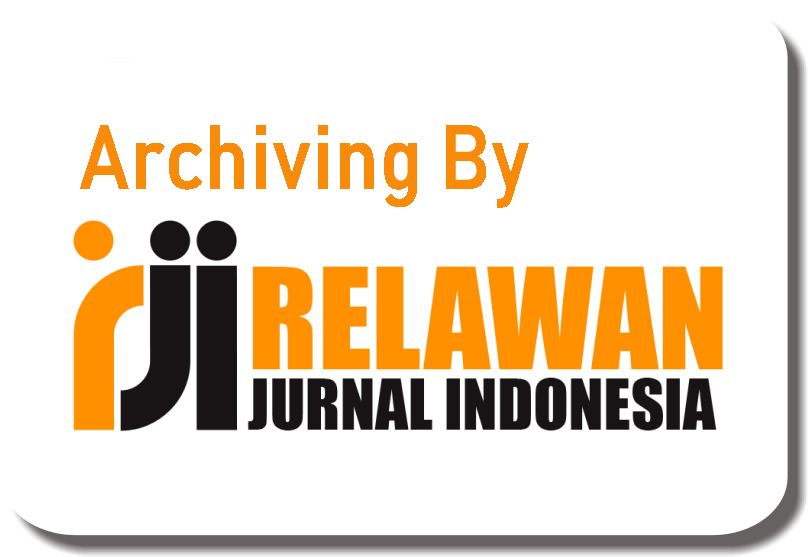ChatGPT in English Learning for Non-English Majors: A Systematic Literature Review
Abstract
This systematic literature review investigates the usage of ChatGPT for the learning of English language among non-English majors. Drawing on ten recent research from the last two years, this study looks at students’ perspectives, the impact on language skills, and the challenges of incorporating ChatGPT into learning contexts. The findings show that ChatGPT improves vocabulary acquisition, academic writing, and conversational skills by giving tailored feedback and a low-pressure practice environment. However, issues regarding dependence, ethical use, and the need for teacher direction persist. This paper emphasizes the likelihood of ChatGPT as a complementary learning tool, emphasizing the significance of mixing AI technology with traditional instruction and cultivating AI literacy in order to maximize benefits while maintaining academic integrity.
Keywords
Full Text:
PDFReferences
Du, J., & Alm, A. (2024). The impact of ChatGPT on English for academic purposes (EAP) students’ language learning experience: A self-determination theory perspective. Education Sciences, 14(7). https://doi.org/10.3390/educsci14070726
Engelina Salainti, N., Frans, N., & Wahani, V. (2025). Students’ perceptions of using ChatGPT in higher education English learning. INTERACTION: Jurnal Pendidikan Bahasa, 12(1), 268–278. https://doi.org/10.36232/interactionjournal.v12i1.2063
Ho, P. X. P. (2024). Using ChatGPT in English language learning: A study on I.T. students’ attitudes, habits, and perceptions. International Journal of TESOL & Education, 4(1), 55–68. https://doi.org/10.54855/ijte.24414
Hu, D., & Wang, A. (2025). Study on the factors influencing demotivation in English learning among non-English major undergraduates in Chinese universities of science and engineering. Journal of Education and Educational Research, 13(1), 6–13. https://doi.org/10.54097/rabd4s31
Huang, W., Hew, K. F., & Fryer, L. K. (2022). Chatbots for language learning—Are they really useful? A systematic review of chatbot-supported language learning. Journal of Computer Assisted Learning, 38(1). https://doi.org/10.1111/jcal.12610
Kasneci, E., Sessler, K., Küchemann, S., Bannert, M., Dementieva, D., Fischer, F., Gasser, U., Groh, G., Günnemann, S., Hüllermeier, E., Krusche, S., Kutyniok, G., Michaeli, T., Nerdel, C., Pfeffer, J., Poquet, O., Sailer, M., Schmidt, A., Seidel, T., … Kasneci, G. (2023). ChatGPT for good? On opportunities and challenges of large language models for education. Learning and Individual Differences, 103. https://doi.org/10.1016/j.lindif.2023.102274
Kostikova, I., Holubnyacha, L., Besarab, T., Moshynska, O., Moroz, T., & Shamaieva, I. (2023). Interactive Mobile Technologies. International Journal of Interactive Mobile Technologies, 17(15), 135–154.
Laili, R. N., Wirawati, W. A., & Nashir, M. (2025). Student’s perception on the use of artificial intelligence (AI) ChatGPT in English language learning: Benefits and challenges in higher education. Edu Cendikia: Jurnal Ilmiah Kependidikan, 4(03), 1389–1403. https://doi.org/10.47709/educendikia.v4i03.5272
Li, J., Zong, H., Wu, E., Wu, R., Peng, Z., Zhao, J., Yang, L., Xie, H., & Shen, B. (2024). Exploring the potential of artificial intelligence to enhance the writing of english academic papers by non-native english-speaking medical students - the educational application of ChatGPT. BMC Medical Education, 24(1), 1–8. https://doi.org/10.1186/s12909-024-05738-y
Mahapatra, S. (2024). Impact of ChatGPT on ESL students’ academic writing skills: a mixed methods intervention study. Smart Learning Environments, 11(1). https://doi.org/10.1186/s40561-024-00295-9
Panmei, B. (2025). GenAI as a Toolkit for English Academic Writing among International Business Students. 29(2), 1–21.
Pham, T. T. N. (2024). Investigating the effectiveness of practicing English conversation with ChatGPT in improving non-English-majored students’ English speaking skills at Nguyen Tat Thanh University. Journal of Science and Technology, 7(4). https://doi.org/10.55401/b1rnww21
Prima, S. A. B., & Hartono, D. A. (2024). University Students ’ Perceptions of Using Chat Gpt. The Journal of English Teaching for Young and Adult Learners, 03(02), 80–87.
Qian, Y., & Hu, D. (2022). An empirical study on demotivating factors of non-English majors in colleges of science and engineering. International Journal of Language and Linguistics, 10(2). https://doi.org/10.11648/j.ijll.20221002.19
Rafidi, T. J., & El Khatib, N. (2025). Students’ perceptions of ChatGPT use in higher education in Lebanon and Palestine: a comparative study. Discover Education, 4(1), 1–21. https://doi.org/10.1007/s44217-025-00721-1
Rao, P. S. (2019). The Role of english as A Global Language. Reseasch Journal of English (RJOE), 4(1).
Snyder, H. (2019). Literature review as a research methodology: An overview and guidelines. Journal of Business Research, 104(August), 333–339. https://doi.org/10.1016/j.jbusres.2019.07.039
Synekop, O., Lytovchenko, I., Lavrysh, Y., & Lukianenko, V. (2024). Use of ChatGPT in English for engineering classes: Are students’ and teachers’ views on its opportunities and challenges similar? International Journal of Interactive Mobile Technologies, 18(3), 129–146. https://doi.org/10.3991/ijim.v18i03.45025
Trinh, N. M. (2024). Factors influencing English learning motivation: A study of the perspectives of non-English majors at a public university in Hanoi, Vietnam. Dalat University Journal of Science, 14(2), 128–142. https://doi.org/10.37569/dalatuniversity.14.2.1177(2024)
Wang, Y. (2025). A study on the efficacy of ChatGPT-4 in enhancing students’ English communication skills. SAGE Open, 15(1), 1–17. https://doi.org/10.1177/21582440241310644
Zhai, X. (2023). ChatGPT user experience: Implications for education. SSRN Electronic Journal. https://doi.org/10.2139/ssrn.4312418
DOI: https://doi.org/10.31004/jele.v10i5.1461
Refbacks
- There are currently no refbacks.
Copyright (c) 2025 Amanda Nurul Hidayah, Yohanes Gatot Sutapa Yuliana, Endang Susilawati

This work is licensed under a Creative Commons Attribution-ShareAlike 4.0 International License.



